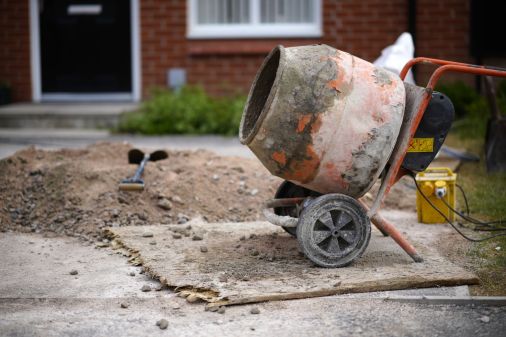As medical supplies dwindle, universities build ventilators, swabs

With medical equipment in short supply because of the COVID-19 pandemic, universities across the country have stepped up to meet the needs of medical workers, using their access to technology and research to make supplies like masks, ventilators and nasal swabs.
The number of confirmed coronavirus cases in the United States soared above 230,000 this week and hospitals across the country are now running low essential supplies to treat patients and keep staff safe from infection. The Open Cities Community Health Center in St. Paul, Minnesota, is considering closing its doors if doctors, nurses and other care providers can’t get the face masks they need, Twin Cities Press reported.
Engineers at the University of California Davis have invested their time and technology to manufacture masks and ventilator parts with 3D printers.
“We are looking to adapt existing, commercially available devices to serve in their place, and/or develop a 3D printed mask that can properly conform to a user’s face using compliant, flexible surfaces,” UC Davis development engineer Steven Lucero said in a press release.
A handful of universities across the country are 3D printing masks as well.
UC Davis students are also using 3D printers to make ventilator parts. Although it’s unlikely an entire ventilator could soon be 3D-printed, by identifying what components in a ventilator are likely to fail first, researchers can produce replacement parts that could help extend the life of the equipment.
At the University of Illinois at Urbana-Champaign, engineers are also working to address national the shortage of ventilators, which are used to help critical patients continue breathing. The university’s college of engineering released blueprints Tuesday for portable emergency ventilators — called RapidVent — that it says are easily manufactured and disposable. The university has made the designs freely downloadable in hopes that more ventilators can be quickly put into production to help hospitals deal with a surge of COVID-19 patients.
“This is not a really sophisticated ventilator, like you would see at most hospitals,” Rashid Bashir, the dean of UC Davis’s College of Engineering said in a press release. “This is an emergency ventilator, the type you would see in a disaster area, that can support hospitals who need help now.”
Similar efforts to develop an easy-to-produce ventilator with open source blueprints are underway at the University of California Irvine.
“The need for ventilators is a medical Dunkirk,” UCI surgeon Brian said in a press release. “It’s a once-in-a-generation call to arms that we all must respond to.”
But ventilators and face masks aren’t the only things in short supply at hospitals. The University of South Florida announced last week that researchers have successfully produced and tested 3D-printed nasal swabs, which are used for testing potential COVID-19 patients and have also fallen into short supply. Students at the University of Michigan are also compounding hand sanitizer in response to projected shortages.
“This is a prime example of the incredible impact we can have on human lives when teams of experts across academia, health care delivery, and the tech industry come together,” Charles Lockwood, senior vice president for USF Health and dean of the USF College of Medicine said in a press release. “During this current COVID-19 outbreak, there is little time for delay, and the swift, agile and adept action of everyone on this effort will greatly improve this nation’s ability to test patients.”




